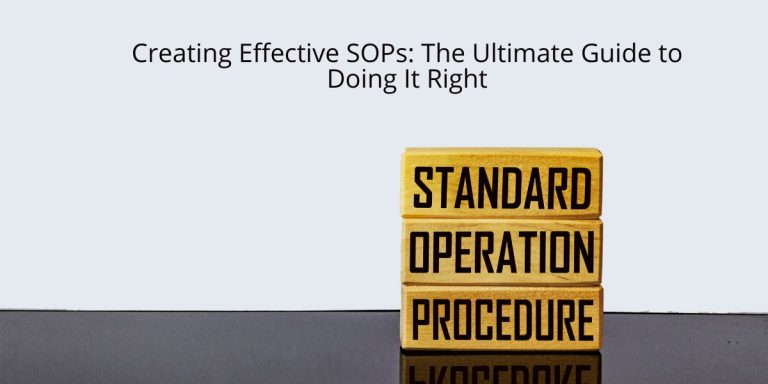Is Your Marketing Message Too Complex?
Key Takeaways
- A complex marketing message can confuse your audience and reduce engagement.
- Clarity and simplicity enhance trust, brand differentiation, and audience recall.
- Use simple language, visuals, and shorter sentences to make your message effective.
- Testing and refining your message ensures better audience resonance.
- A clear value proposition is key to a successful marketing strategy.
Introduction
As a business owner or marketer, crafting an effective marketing message is crucial. However, many businesses fall into the trap of overcomplicating their messaging, which can deter potential customers and hinder conversions. A clear, concise, and engaging message is essential to ensure that your audience understands your offering.
In this article, we will explore:
- The signs that your marketing message is too complex.
- Steps to simplify your message for better engagement.
- The importance of simplicity in modern marketing.
- Real-world examples and expert insights to guide you.
Signs Your Marketing Message Is Too Complex
1. Confused or Uninterested Audience
If your audience seems disengaged, confused, or uninterested, your message might be too complex. When people don’t understand your offering quickly, they will move on to competitors with clearer messaging.
2. Long and Complicated Sentences
Marketing messages should be concise and direct. If your message is full of long-winded sentences, industry jargon, or unnecessary details, it can overwhelm your audience.
3. Lack of Clarity and Focus
A clear marketing message should immediately answer these questions:
- What do you offer?
- Who is it for?
- Why is it valuable? If these answers aren’t obvious, your message may be too convoluted.
4. High Bounce Rates
If visitors leave your website quickly, it could indicate that your message is unclear or too complex to digest within seconds.
5. Inconsistent Brand Messaging
If your advertisements, website, and social media deliver inconsistent messages, your audience will struggle to grasp your unique value proposition.
Steps to Simplify Your Marketing Message
1. Focus on Your Value Proposition
A strong value proposition highlights:
- The main problem you solve.
- How your product or service benefits the customer.
- Why your brand is better than competitors.
“Make it simple. Make it memorable. Make it inviting to look at. Make it fun to read.” – Leo Burnett
2. Use Simple Language
Avoid complex words, jargon, and technical terms. Instead, use clear and straightforward language that a broad audience can understand.
Example:
- ❌ “Our AI-driven, data-centric solution offers hyper-automated workflow efficiencies.”
- ✅ “Our smart software helps businesses save time by automating tasks.”
3. Make Use of Visuals
Visual elements can break down complex ideas and make your message easier to understand.
- Infographics simplify complex data.
- Images reinforce key points.
- Videos improve engagement and retention.
4. Keep It Short and Sweet
Customers have short attention spans. Keep your messages:
- Concise (aim for 5-10 words per sentence).
- Direct (avoid filler words).
- Engaging (focus on benefits, not features).
5. Test and Optimize Your Message
Regularly test different versions of your message to see which resonates best. A/B testing, customer feedback, and engagement analytics can help refine your marketing.
| Marketing Element | Optimized for Simplicity |
|---|---|
| Website Headlines | “Get More Customers Today” |
| Email Subject Lines | “Boost Sales in 3 Steps” |
| Ad Copy | “Save Time with Our Tool” |
The Importance of Simplicity in Marketing
1. Simplicity Makes Messages More Memorable
A clear and concise message is easier to recall and share. Brands like Apple, Nike, and Coca-Cola succeed because of their simple and impactful messaging.
2. Simplicity Builds Trust
Customers trust brands that communicate clearly. A complex message can make a company seem unreliable or unapproachable.
3. Simplicity is More Persuasive
A direct, benefit-focused message is more likely to persuade customers. Instead of explaining how your product works, focus on why it matters.
4. Simplicity Differentiates Your Brand
In a crowded market, a simple message cuts through the noise and helps customers understand why your brand is the best choice.
5. Simplicity Saves Time and Resources
A complex marketing message requires more effort, revisions, and explanations. A simple, well-crafted message improves efficiency and saves marketing costs.
| Brand | Simple Slogan |
| Apple | “Think Different” |
| Nike | “Just Do It” |
| McDonald’s | “I’m Lovin’ It” |
How Successful Brands Use Simple Marketing Messages
1. Apple – “Think Different”
Apple’s marketing avoids technical jargon and instead focuses on how its products enhance creativity and innovation.
2. Nike – “Just Do It”
Nike’s message is inspiring, empowering, and action-oriented. It connects emotionally with customers.
3. McDonald’s – “I’m Lovin’ It”
This phrase instantly conveys positivity and enjoyment, making it highly relatable and memorable.
Common Mistakes to Avoid in Marketing Messages
- Overloading with Information – Keep it short and impactful.
- Ignoring the Audience’s Needs – Focus on what matters to them.
- Using Too Much Jargon – Stick to plain English.
- Being Too Generic – Stand out with a unique and clear message.
- Failing to Test Your Message – Always optimize based on feedback.
Conclusion
A complex marketing message can cost you engagement, trust, and sales. By focusing on a clear value proposition, using simple language, incorporating visuals, keeping messages short, and testing your strategy, you can create compelling, effective marketing that resonates with your audience.
Simplicity in marketing isn’t just a preference—it’s a necessity. Brands that communicate clearly and concisely gain trust, increase engagement, and drive sales.
So, take a step back and evaluate your marketing message today. Is it clear enough to make an impact?
References
- Burnett, L. (n.d.). Marketing and Simplicity.
- Apple, Nike, McDonald’s Official Websites.
- Marketing Psychology Research Journal, 2023.
#Marketing #BrandMessaging #Simplicity #CustomerEngagement

